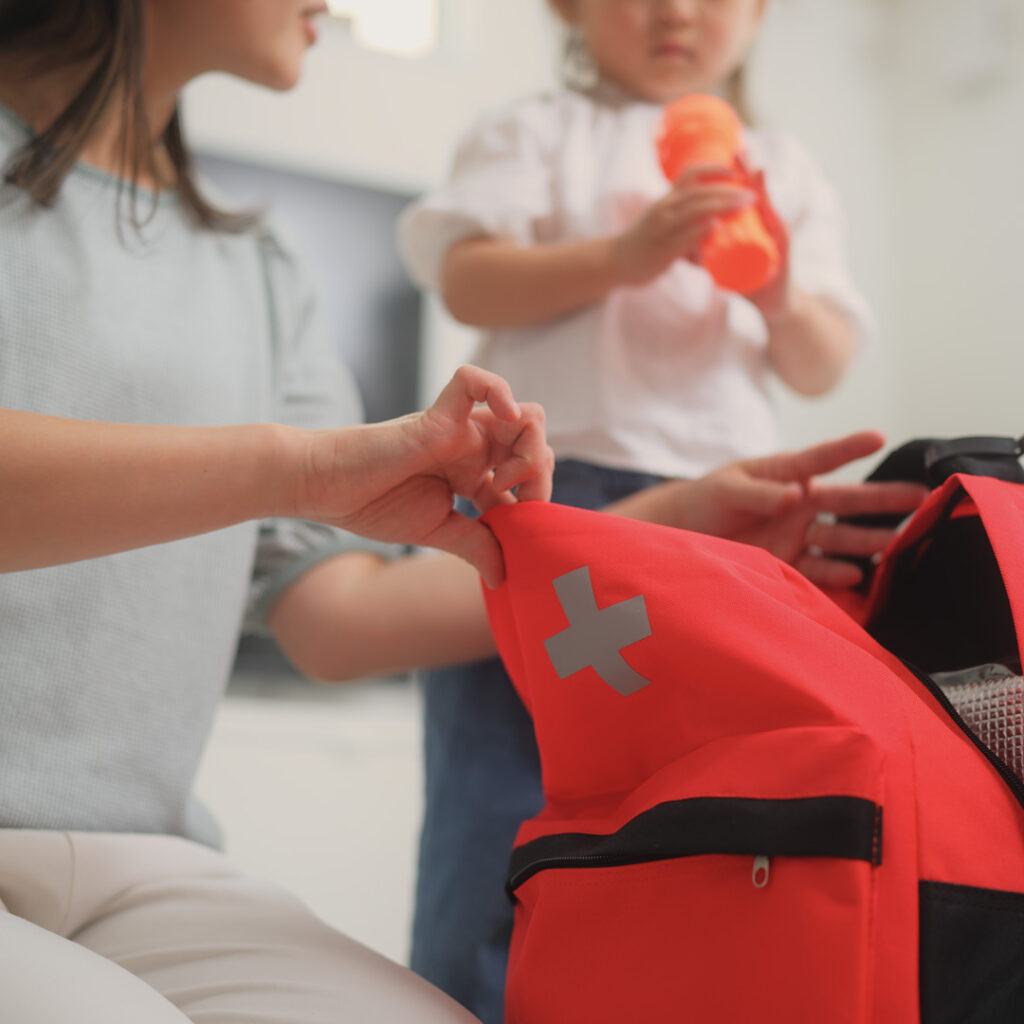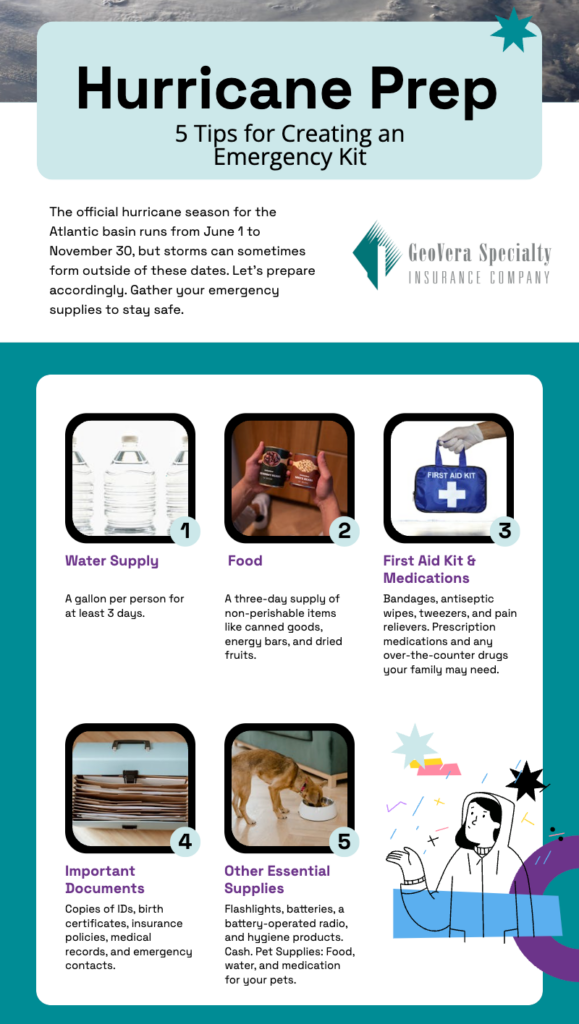
A Comprehensive Guide for Florida Homeowners
The official hurricane season for the Atlantic basin runs from June 1 to November 30, but storms can sometimes form outside of these dates. Let’s prepare accordingly.
Living in Florida comes with its unique set of challenges, especially when it comes to hurricane season. With a history marked by named storms like Irma, Michael, and Dorian, Floridians understand the importance of preparing their homes for these potentially devastating storms. Recent hurricanes have left countless homes flooded, roofs damaged, and families displaced. In this guide, we’ll provide comprehensive tips to help you safeguard your home and ensure your family is ready for whatever hurricane season may bring.
Create an Emergency Kit
The first step in hurricane preparation is assembling a reliable emergency kit. This should include:
- Water: At least one gallon per person per day for three days.
- Food: A three-day supply of non-perishable items like canned goods, energy bars, and dried fruits.
- Medications: Prescription medications and any over-the-counter drugs your family may need.
- First Aid Supplies: Bandages, antiseptic wipes, tweezers, and pain relievers.
- Important Documents: Copies of birth certificates, insurance policies, and medical records.
- Other Essentials: Flashlights, batteries, a battery-operated radio, and hygiene products.
- Cash: Small bills for emergency purchases if ATMs are down.
- Pet Supplies: Food, water, and medication for your pets.

Property Fortification
Securing your property is crucial to minimizing damage during a hurricane.
- Window and Door Reinforcements:
- Install hurricane shutters or storm panels over windows.
- Consider upgrading to impact-resistant windows and doors for added protection.
- Secure Outdoor Furniture and Decorations:
- Anchor or store patio furniture, grills, and decorative items.
- Bring lightweight planters and lawn ornaments indoors.
- Garage Door Reinforcement:
- Install a horizontal or vertical brace to strengthen garage doors, which are particularly vulnerable to high winds.
Generator Safety and Installation:
A generator can be a lifesaver during extended power outages, but it’s essential to use it safely
- Types of Generators:
- Portable Generators: Less expensive but require manual setup and fueling.
- Standby Generators: More costly but provide automatic power and are often connected directly to your home’s fuel supply.
- Installation Tips:
- Place generators at least 20 feet from your home to avoid carbon monoxide poisoning.
- Ensure the generator is on a flat, dry surface and protected from rain.
- Maintenance Practices:
- Regularly test your generator and check oil levels.
- Stock up on fuel and follow safe storage guidelines.
Roof and Gutter Maintenance:
Maintaining your roof and gutters can prevent leaks and flooding.
- Inspect and Repair Roofs:
- Look for loose shingles or tiles and repair any damages.
- Consider installing hurricane straps or clips to secure the roof.
- Clean Gutters and Downspouts:
- Remove debris to ensure proper drainage.
- Install gutter guards to minimize future clogs.
Protect your home and loves ones
Preparation is key to riding out hurricane season with peace of mind. By assembling an emergency kit, fortifying your property, ensuring generator safety, and maintaining your roof and gutters, you’ll be better equipped to handle any storm that comes your way. Don’t wait until a hurricane is on the horizon; take proactive steps now to protect your home and loved ones. Stay safe and well-prepared this hurricane season!
Why Choose GeoVera?
Rated “A” Excellent by A.M. Best, GeoVera is a leading provider of residential E&S insurance for Florida communities. We offer innovative solutions and decades of expertise to help homeowners swiftly recover from a small claim to the most severe catastrophic event.
